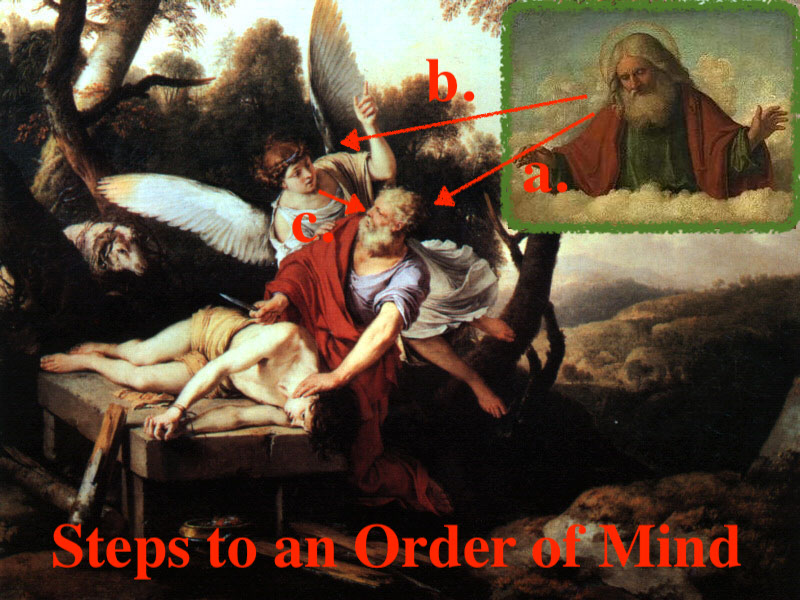
《バカが擁護したり糾弾する》
公衆衛生は社会防衛なので、ファシズムと親和性が高 い、というか、ファシズムがとりうる政策が人間を対象とした優生学で、それを社会に拡張したのが衛生学。Public Health はジョンズホプキンス大学やフレクスナー改革からでてきた、米国流の社会統制のための衛生学、いずれにしても、出自が錯綜する。なにがめんどいかという と、コロナをめぐる公衆衛生で、いままで良かれと思っていることが5年後はひでぇことになるのは、福島第一発電所でも同じ、現在から過去を断罪することに なる。現在から過去を断罪してもいいが、過去そのものは弁明できないので、どうでもいいバカが擁護したり糾弾するのがめんどいわけ。冷静に歴史を眺めて、 未来にヘタを打たない(=失敗しない)ことだけが重要なんだよ。
"A metalogue is a conversation about some problematic subject. This conversation should be such that not only do the participants discuss the problem but the structure of the conversation as a whole is also relevant to the same subject. Only some of the conversations here presented achieve this double format./ Notably, the history of evolutionary theory is inevitably a metalogue between man and nature, in which the creation and interaction of ideas must necessarily exemplify evolutionary process."- Steps to an Ecology of Mind
メタローグとは、何か問題のあるテーマについての会
話である。この会話は、参加者が問題を論じるだけでなく、会話の構造全体が同じテーマに関連しているようなものでなければならない。進化論の歴史は、必然
的に人間と自然の間のメタローグであり、そこでのアイデアの創造と相互作用は、必然的に進化の過程を例証するものでなければならない。——ベイトソン「精
神/こころの生態学への諸段階」
アブラハムは神のいうことをきく(a.)、アブラハ ムは息子のイサクを屠ろうとする直前に、神の命を受けた(b.)天使にとめられる(c.)、イサクのおけつをみているのは、羊(h.)で、彼は「ああ、ま た、明日から俺たちへの屠畜がはじまるか?」という諦めの声をあげる——『宗教画の女は処女ばかり集』より
「こうした技法をもって得られるものも、また一種の「歴史小説」としてとらえられる」——フロイト
| Steps to an Ecology of Mind
is a collection of Gregory Bateson's short works over his long and
varied career. Subject matter includes essays on anthropology,
cybernetics, psychiatry, and epistemology. It was originally published
by Ballantine Books in 1972 (republished 2000 with foreword by Mary
Catherine Bateson).[1] The book begins with a series of metalogues, which take the form of conversations with his daughter Mary Catherine Bateson. The metalogues are mostly thought exercises with titles such as "What is an Instinct" and "How Much Do You Know." In the metalogues, the playful dialectic structure itself is closely related to the subject matter of the piece. |
本書は、グレゴリー・ベイトソンの長く多彩なキャリアの中で書かれた短
編を集めたものである。主題は、人類学、サイバネティクス、精神医学、認識論に関するエッセイである。本書は1972年にバランタイン・ブックスから出版
された(メアリー・キャサリン・ベイトソンによる序文付きで2000年に再出版)[1]。 本書は、彼の娘であるメアリー・キャサリン・ベイトソンとの会話の形をとった一連のメタローグから始まる。メタローグは、"本能とは何か "や "あなたはどれだけ知っているか "といったタイトルの思考練習である。メタローグでは、遊び心のある弁証法的な構造そのものが、作品の主題と密接に関わっている。 |
| Part I: Metalogues DEFINITION: A metalogue is a conversation about some problematic subject. This conversation should be such that not only do the participants discuss the problem but the structure of the conversation as a whole is also relevant to the same subject. Only some of the conversations here presented achieve this double format. Notably, the history of evolutionary theory is inevitably a metalogue between man and nature, in which the creation and interaction of ideas must necessarily exemplify evolutionary process.[2] Why Do Things Get in a Muddle? (01948, previously unpublished) Why Do Frenchmen? (01951, Impulse ; 01953, ETC.: A Review of General Semantics, Vol. X) About Games and Being Serious (01953, ETC.: A Review of General Semantics, Vol. X) How Much Do You Know? (01953, ETC.: A Review of General Semantics, Vol. X) Why Do Things Have Outlines? (01953, ETC.: A Review of General Semantics, Vol. XI) Why a Swan? (01954, Impulse) What Is an Instinct? (01969, Sebeok, Approaches to Animal Communication) |
第1部:メタローグ 定義:メタローグとは、何か問題のあるテーマについての会話である。この会話は、参加者がその問題について話し合うだけでなく、会話全体の構造も同じテー マに関連しているようなものでなければならない。ここで紹介する会話のうち、この二重の形式を実現しているのは一部だけである。 注目すべきは、進化論の歴史は必然的に人間と自然とのメタローグであり、その中でアイデアの創造と相互作用は必然的に進化のプロセスを例証しなければならない[2]。 なぜ物事は混乱するのか? なぜフランス人そうするのか? (01951、衝動;01953、ETC.:一般意味論総説第X巻) ゲームと本気について(01953、ETC:一般意味論総説第X巻) あなたはどこまで知っているか?(01953,ETC.:一般意味論評論第X巻) なぜ物事には輪郭があるのか (01953,ETC。『一般意味論総説』XI) なぜ白鳥なのか?(01954、衝動) 本能とは何か?(01969、セベオク 動物コミュニケーションへのアプローチ) |
| Part II: Form and Pattern in Anthropology Part II is a collection of anthropological writings, many of which were written while he was married to Margaret Mead. Culture Contact and Schismogenesis (01935, Man, Article 199, Vol. XXXV) Experiments in Thinking About Observed Ethnological Material (01940, Seventh Conference on Methods in Philosophy and the Sciences ; 01941, Philosophy of Science, Vol. 8, No. 1) Morale and National Character (01942, Civilian Morale, Watson) Bali: The Value System of a Steady State (01949, Social Structure: Studies Presented to A.R. Radcliffe-Brown, Fortes) Style, Grace, and Information in Primitive Art (01967, A Study of Primitive Art, Forge) |
第II部 人類学における形態とパターン 第II部は人類学の著作集であり、その多くはマーガレット・ミードと結婚している間に書かれたものである。 文化接触と分裂発生(01935、『人間』第199号、第XXXV巻) 観察された民族学的資料について考える実験(01940, 第7回哲学・科学方法会議 ; 01941, 科学の哲学, 第8巻第1号) モラルと国民性(01942『民間人のモラル』ワトソン) バリ島: 安定国家の価値体系(01949、社会構造:A.R.ラドクリフ=ブラウンに贈られた研究、フォルテス) 原始美術における様式、気品、情報(01967『原始美術の研究』フォージ) |
| Part III: Form and Pathology in Relationship Part III is devoted to the theme of "Form and Pathology in Relationships." His essay on alcoholism examines the alcoholic state of mind, and the methodology of Alcoholics Anonymous within the framework of the then-nascent field of cybernetics. Social Planning and the Concept of Deutero-Learning was a "comment on Margaret Mead's article "The Comparative Study of Culture and the Purposive Cultivation of Democratic Values," 01942, Science, Philosophy and Religion, Second Symposium) A Theory of Play and Fantasy (01954, A.P.A. Regional Research Conference in Mexico City, March 11 ; 01955, A.P.A. Psychiatric Research Reports) Epidemiology of a Schizophrenia (edited version of a talk, "How the Deviant Sees His Society," from 01955, at a conference on "The Epidemiology of Mental Health," Brighton, Utah) Toward a Theory of Schizophrenia (01956, Behavioral Science, Vol. I, No. 4) The Group Dynamics of Schizophrenia (01960) Minimal Requirements for a Theory of Schizophrenia (01959) Double Bind, 1969 (01969) The Logical Categories of Learning and Communication (01968) The Cybernetics of "Self": A Theory of Alcoholism (01971) |
パートIII:人間関係における形と病理 第III部は、"人間関係における形態と病理 "をテーマとしている。アルコール依存症に関するエッセイでは、アルコール依存症の精神状態や、当時まだ黎明期だったサイバネティクスの枠組みの中での断酒会の方法論について考察している。 ソーシャル・プランニングとデューテロ・ラーニングの概念は、マーガレット・ミードの論文「文化の比較研究と民主的価値観の目的論的育成」(01942『科学・哲学・宗教』第2回シンポジウム)への「コメント」である。 遊びとファンタジーの理論」(01954、『A.P.A.地域研究会議』メキシコ・シティ、3月11日、01955、『A.P.A.精神医学研究報告書) 精神分裂病の疫学(01955年、ユタ州ブライトンでの「精神衛生の疫学」会議での講演「逸脱者はどのように社会を見るか」の編集版) 精神分裂病の理論に向けて」(01956年、『行動科学』第1巻第4号) 精神分裂病の集団力学 (01960) 精神分裂病理論の最小要件 (01959) ダブルバインド、1969年 (01969) 学習とコミュニケーションの論理カテゴリー (01968) 自己」のサイバネティクス (01968) アルコール依存症の理論 (01971) |
| Part IV: Biology and Evolution On Empty-Headedness Among Biologists and State Boards of Education (in BioScience, Vol. 20, 1970) The Role of Somatic Change in Evolution (in the journal of Evolution, Vol 17, 1963) Problems in Cetacean and Other Mammalian Communication (appeared as Chapter 25, pp. 569–799, in Whales, Dolphins and Purpoises, edited by Kenneth S. Norris, University of California Press, 1966) A Re-examination of "Bateson's Rule" (accepted for publication in the Journal of Genetics) |
第IV部:生物学と進化論 生物学者と州教育委員会における頭でっかちについて(『バイオサイエンス』第20号、1970年) 進化における体細胞変化の役割(『進化』誌第17巻、1963年所収) 鯨類とその他の哺乳類のコミュニケーションにおける問題点(ケネス・S・ノリス編『クジラ、イルカ、ネズミイルカ』カリフォルニア大学出版会、1966年、第25章、569-799ページ掲載) ベイトソンの法則」の再検討(Journal of Genetics誌に受理される) |
| Part V: Epistemology and Ecology. Cybernetic Explanation (from the American Behavioral Scientist, Vol. 10, No. 8, April 1967, pp. 29–32) Redundancy and Coding (appeared as Chapter 22 in Animal Communication: Techniques of Study and Results of Research, edited by Thomas A. Sebeok, 1968, Indiana University Press) Conscious Purpose Versus Nature (this lecture was given in August, 1968, to the London Conference on the Dialectics of Liberation, appearing in a book of the same name, Penguin Books) Effects of Conscious Purpose on Human Adaptation (prepared as the Bateson's position paper for Wenner-Gren Foundation Conference on "Effects of Conscious Purpose on Human Adaptation". Bateson chaired the conference held in Burg Wartenstein, Austria, July 17–24, 1968) Form, Substance, and Difference (the Nineteenth Annual Korzbski Memorial Lecture, January 9, 1970, under the auspices of the Institute of General Semantics; appeared in the General Semantics Bulletin, No. 37, 1970) |
第V部:認識論と生態学。 サイバネティックな説明(『アメリカ行動科学者』第10巻第8号、1967年4月、29-32頁より) 冗長性と符号化(『動物コミュニケーション』の第22章として掲載された: トーマス・A・セベオク編、1968年、インディアナ大学出版)の第22章として掲載された。 Conscious Purpose Versus Nature(この講演は1968年8月、ロンドンにおける解放の弁証法会議で行われた。) 人間の適応に対する意識的目的の影響(「人間の適応に対する意識的目的の影響」に関するウェナー・グレン財団会議のベイトソンのポジションペーパーとして 作成された。ベイトソンは1968年7月17日から24日までオーストリアのブルグ・ヴァルテンシュタインで開催された会議の議長を務めた。) 形式、実体、差異(1970年1月9日、一般意味論研究所主催の第19回コルツブスキー記念講演。) |
| Part VI: Crisis in the Ecology of Mind From Versailles to Cybernetics (previously unpublished. This lecture was given 21 April 1966, to the "Two Worlds Symposium" at (CSU) Sacramento State College) Pathologies of Epistemology (given at the Second Conference on Mental Health in Asia and the Pacific, 1969, at the East–West Center, Hawaii, appearing in the report of that conference) The Roots of Ecological Crisis (testimony on behalf of the University of Hawaii Committee on Ecology and Man, presented in March 1970) Ecology and Flexibility in Urban Civilization (written for a conference convened by Bateson in October 1970 on "Restructuring the Ecology of a Great City" and subsequently edited) |
第VI部 心のエコロジーにおける危機 ヴェルサイユからサイバネティクスへ(未発表。この講演は1966年4月21日、(CSU)サクラメント州立大学の「二つの世界シンポジウム」で行われた) 認識論の病理(1969年、ハワイの東西センターで開催された第2回アジア・太平洋精神保健会議での講演。) 生態学的危機の根源(ハワイ大学生態学と人間に関する委員会を代表しての証言、1970年3月発表) 都市文明におけるエコロジーと柔軟性(1970年10月にベイトソンが招集した「大都市のエコロジーの再構築」についての会議のために書かれ、その後編集された) |
| Double bind Information ecology Philosophy of mind Social sustainability Systems philosophy Systems theory |
ダブルバインド 情報エコロジー 心の哲学 社会の持続可能性 システム哲学 システム理論 |
| https://en.wikipedia.org/wiki/Steps_to_an_Ecology_of_Mind |
+++
Links
- Steps to an Ecology of Mind︎▶︎︎▶︎▶︎︎▶︎▶︎︎▶︎▶︎︎▶︎▶︎
リンク
- 優生学▶︎▶︎︎▶︎▶︎︎▶︎▶︎︎▶︎▶︎
文献
- Bateson, Gregory
(1972). Steps to an Ecology of Mind: Collected Essays in Anthropology,
Psychiatry, Evolution, and Epistemology. University of Chicago Press.
その他の情報





